Talansky on transition from professional cycling to triathlon
Q&A with American as he embarks on a new adventure in sport
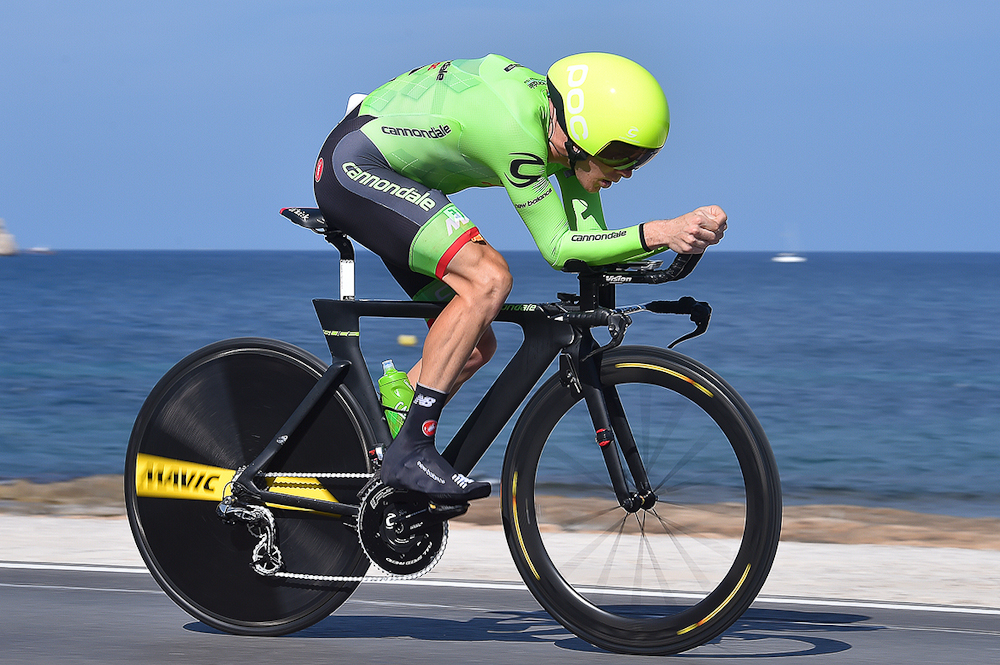
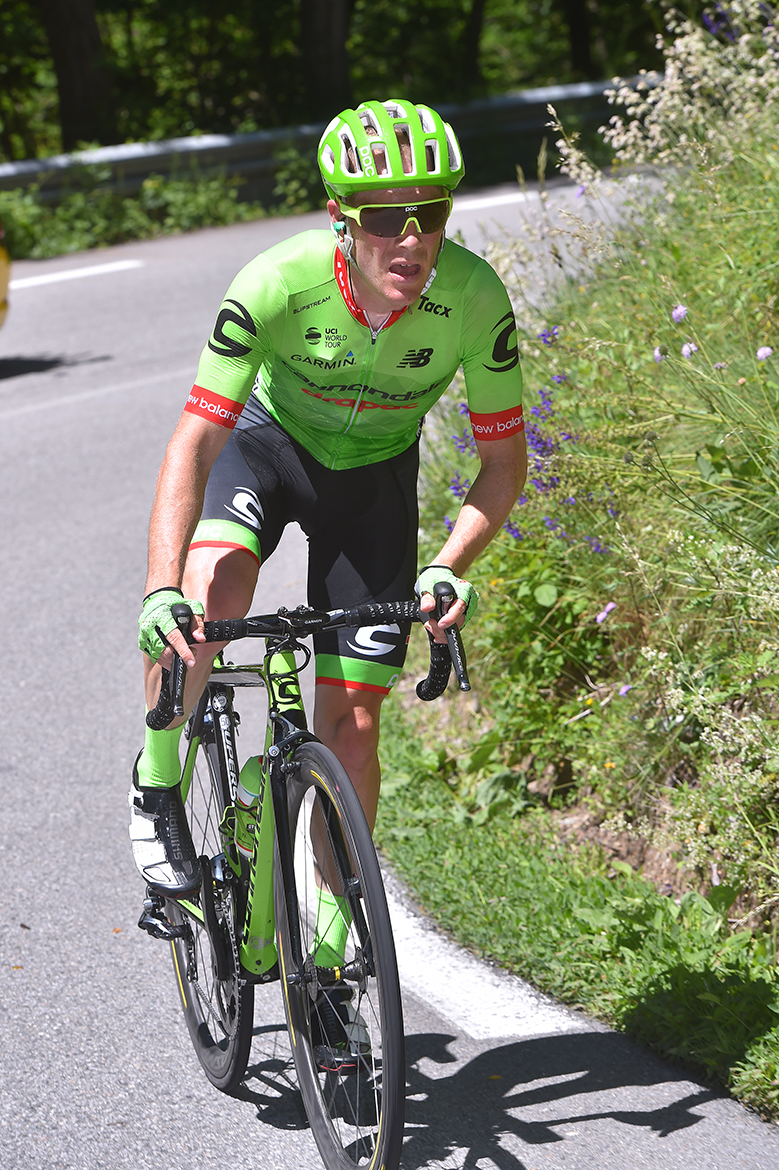
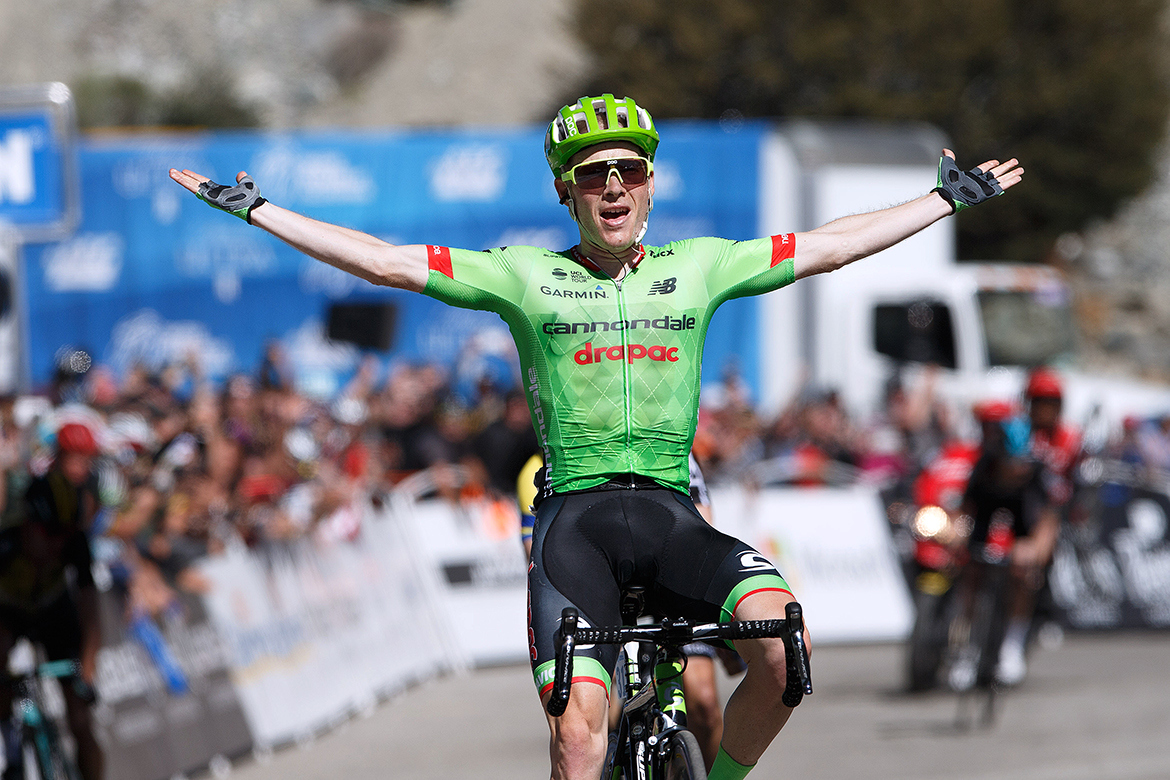
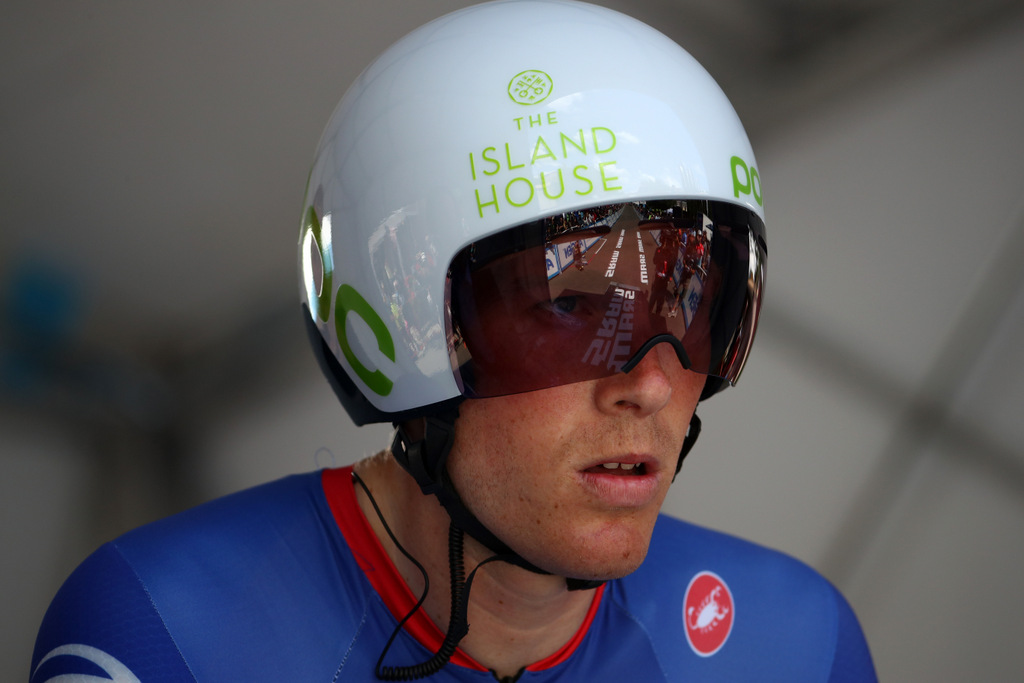
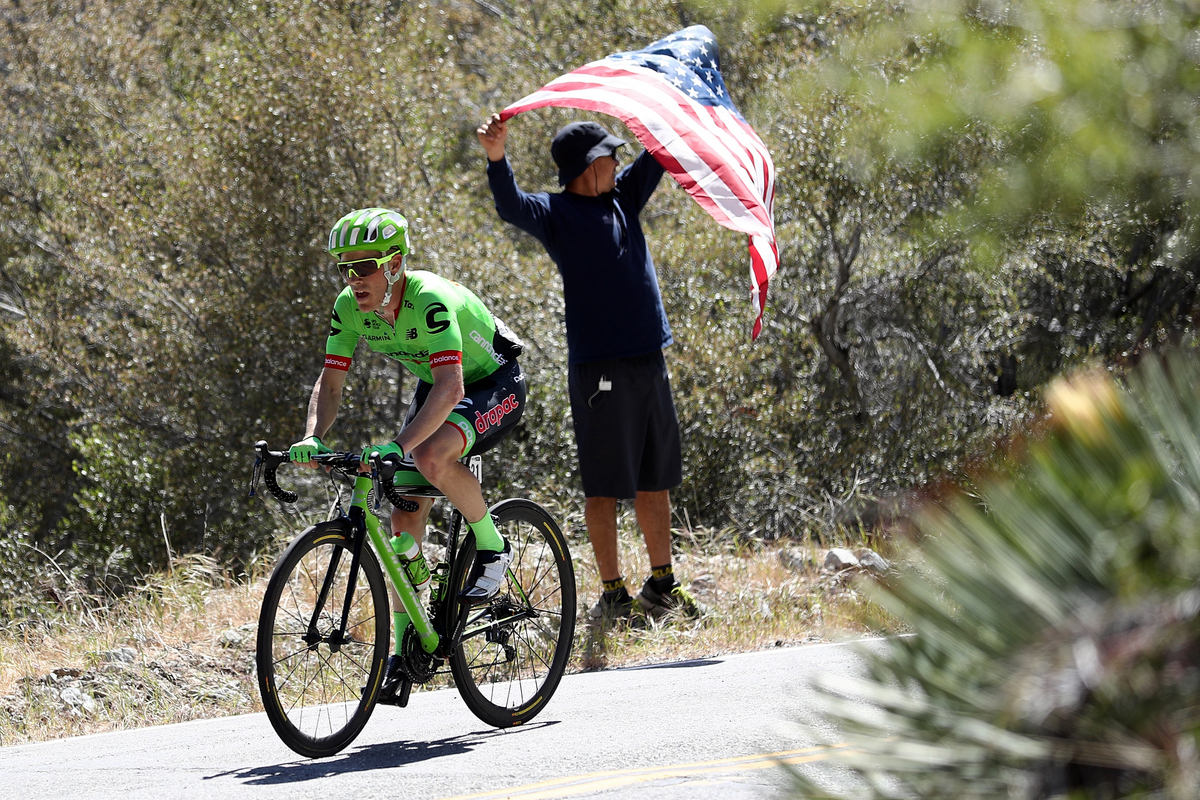
In September, Andrew Talansky (Cannondale-Drapac) announced that he was retiring from professional cycling after nine years with Slipstream Sports. One month later, he announced his intention to compete in professional triathlon, specifically at the Ironman distance. This past weekend, he showed his venture was serious, dominating the small Marin County Triathlon's Olympic distance event, winning by more than 10 minutes over his next competitor.
Cyclingnews chatted with the American to find out what prompted his decision, what drew him to Ironman, and how he planned to apply his elite-level physique to the new discipline.
Cyclingnews: You've been 10th in the Tour de France, fifth in the Vuelta a Espana, and won the Criterium du Dauphine, with so much potential in cycling, what made you suddenly quit to take up triathlon?
Andrew Talansky: I can see how from the outside that the decision seemed abrupt, but it was actually something I've been working on quietly for a while now. Even from last winter, we knew it was time for a change. I didn't necessarily know it would be going into pro Ironman, but my priorities in life were shifting.
I was questioning whether cycling is 100 per cent what I wanted to be doing. It's such a demanding sport from the risk, the race days and travel, setting up your life in Europe for half the year, every year. Cycling wasn't pushing me to develop as a human being, related to business and life in general, it wasn't pushing me outside of my comfort zone. Also athletically.
When I looked at my life in the world of endurance sports, you have a limited time to be at the elite level. I asked myself is professional cycling what I do for the next six or seven years - maybe try to achieve some more results? Or is it time to tear up the script and do something a little different.
My son Bodie is almost eight months old, and by the time he was five months old, I'd been gone for three months. I already knew it was time to move on from pro cycling, but if there was anything that drove it home it was that. Being gone for months on end wasn't something I wanted to continue. I want to be the best athlete I can, but I know that I'm a better athlete when I'm being the best father, husband and friend I can be to the most important people in my life. It's not a trade off, they kind of feed each other. You saw that in Tour of California, I got to spend a month with my family and then showed up and had my best result for years. That's not a coincidence.
The latest race content, interviews, features, reviews and expert buying guides, direct to your inbox!
CN: Most athletes would say the Olympics are the main objective, but you picked Ironman over Olympic distance, why is that?
AT: When I ran, the Olympics were the pinnacle of running. The same goes for swimming. But when you move into cycling and triathlon, there are events that kind of trump the Olympics. That's not being disrespectful to the Olympics, it's just looking at how it's viewed by the endurance athletic world. You have the Tour de France and you have the Kona Ironman world championships.
If you ask a cyclist 'would you rather win the Tour de France or an Olympic gold medal', the answer might vary but I think most riders would want to win the Tour de France in their career.
Plus, I don't have a chance in Olympic distance triathlon. It's draft-legal, and my strength is as a time trialist - that would remove that advantage completely. These guys are running incredible 10ks, that are almost comparable to some of the top guys in the world, and their swim is out of control. I even said 70.3s will be a bit of a challenge for me, but when you make it an eight hour race, that changes the game completely - physiologically and mentally. That eight-hour event is where I'm going to excel, that's where I'm at my best. When it comes down to the mental side of it, that's what it's all about for me. You're competing, but the biggest thing you're going up against is your own mind. That's what I've always been best at - in time trials there's nobody out there but you. Ironman is absolutely an extension of that.
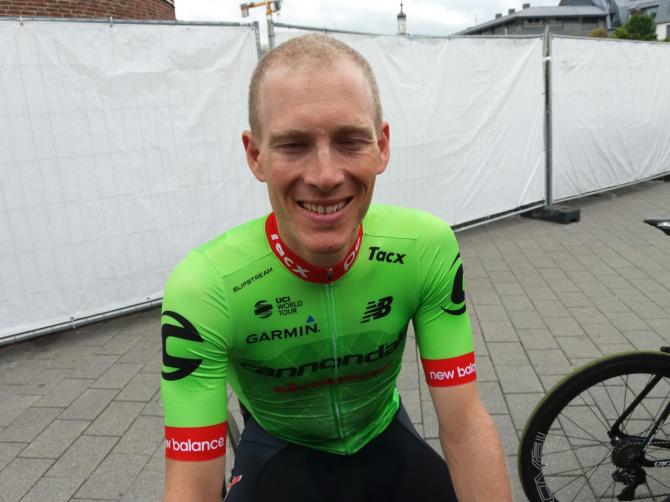
CN: It will be a big change from being part of a team and having a bus full of teammates after every event to racing on your own. Triathlon, especially the swim, is very solitary, does that favour your personality?
AT: Anyone who knows me knows that the solitary aspect favors me. I went into cycling because as much as I like watching team sports, I've always shied away from them. There's this underlying aspect to me - I could have the best day of my life but it could amount to nothing if someone else has the worst day of theirs.
Ironman might be solitary when you're out there, but you are building your own team of people - from your family to your sponsors and partners, your coach - the way I want to look at it is when I have success then it's about the team. When I don't - I say when, because not every day will be perfect - when you fail, the only person that's going to fall back on is me. I can be 100 per cent responsible for that. It's not going to come down to anybody or anything else. I love that aspect. When you have success you can share it with the people who helped you get there, and when you don't, you can look in the mirror and figure out what you have to do better. I like that accountability and responsibility. It's pure - the clock determines the winner. My favorite part of cycling was always time trials. I'm looking forward to that aspect of it.
CN: You've had some great results in cycling, but also some hard times. Did that day in the Tour de France when you struggled to make the time cut sour your relationship with the sport?
AT: People vastly overestimated two things about my cycling career: the effect winning the Dauphine had, and the effect that day had. If you asked what my proudest moment was, it would be the fifth place overall in the Vuelta. One was something that I set out to do and said I was going to do months beforehand. The other one was something that happened on the day. Both were great experiences but were totally different. The same with the Tour. That was obviously a very highly publicised day - I'm thankful it inspired some people - I'm glad something good could come from something so bad - but there are guys almost in every Grand Tour who go through something like that, the only difference is maybe the camera isn't with them the whole time.
I didn't really have any idea what was going on around me that day, I had no idea the camera was with me and my suffering was being shown on television, but thankfully it inspired people in a positive way to persevere. I knew there was no way I was going to be able to start the next day while I was doing it, I was still proud to get to the finish line that day.
It affects you, but once you have time to process it and move forward, that's what you do. Now it's just one day of many days of suffering I've endured in cycling.
CN: Those days will certainly help you as an athlete, when you push through that wall.
AT: There are great examples of that in Ironman - you had two-time defending champion Jan Frodeno reduced to walking, at times he was on the ground kneeling with pain in the marathon - he finished. A guy like that could have walked away and said, I don't need this, I'm in pain, my body is damaged, but he finished in order to honour the race. That's much like what I did at the Tour.
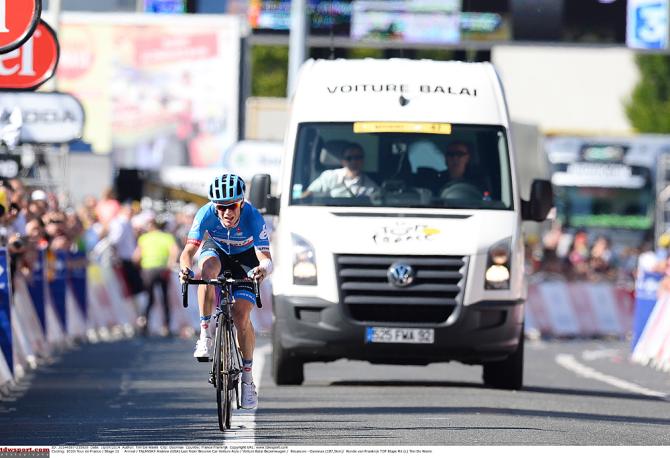
CN: Going from cycling, you've got a huge endurance base and a high tolerance for pain, but open water swims and running marathons are so different. Where are you with your preparations?
AT: It's only just begun. This is the beginning of the real training for 2018. That's the excitement and the adventure, the engine is there but transferring that ability to swimming and running will be the challenge. Swimming is one where you can put in a lot of work and push the body from early on. Running is the one you have to be cautious about from an injury aspects - I haven't had much impact for the last 10 years. That's something we'll be approaching conservatively.
This isn't a one-year plan. The goal is to qualify and be in Kona in 2018, even that's ambitious. I think it's a three-year project. I think Kona 2020 is where we're going to see what I might be capable of. When I line up there, I'll be 31, and you can be winning Kona when you're 37.
I have a really good runway in this sport - which is also part of what led me to switch now. It certainly wasn't at 35 when you're done with your cycling career. Then you could do it for fun, but your chance of being competitive is out the window. Now, I truly have a chance to make a whole other career out of Ironman.
CN: Have you done much open water swimming?
AT: I've spent so much time in the ocean, and in open water that I think it will favor me more than the pool. I've surfed every off-season, I grew up in the ocean as a kid. I'm more comfortable there than the pool. I'll never look like Michael Phelps, but I don't need to. I just need to eventually build to doing a respectable swim at the Ironman distance.
When we were up in Tahoe before heading to Kona, I managed to swim straight across [Donner Lake - 2.7 miles/4.38km]. I'm not sure how straight I swam. I had a friend on a paddle board out there with me more to make sure I didn't run into trouble in the middle of the lake. I made it across, and it was good just to get that feel for that sort of distance.
CN: I started running after cycling and ended up with two stress fractures, so I know it can be pretty dicey diving into that, what is your plan for the marathon distance?
AT: That was part of the consideration with finding a coach. That's a risk I run, aerobically I can handle a quick progression, but with running, you might not know something is going dramatically wrong until it goes wrong. There are warning signs, but ligaments, tendons, bone, they don't have the same kinds of signals that muscles do. That's something we'll be cautious with.
I can be as ambitious, fit and mentally tough as I want to be, but going to Kona - the goal is just to qualify. There's no shortcut to putting in the miles. I'd rather be a little more conservative and stay healthy rather than push too fast to get a result and end up injured. We'll definitely be taking it slowly and conservatively.
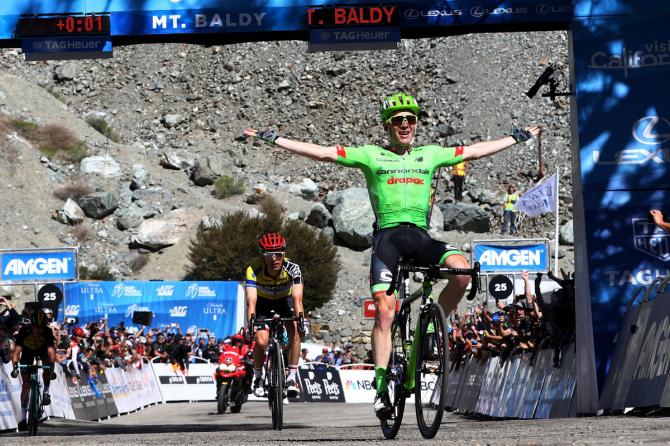
CN: When is your first race?
AT: To be determined. It will be a half [Ironman] distance, probably sometime in March. We're mapping out two different race program options and trying to nail it down. We have some time to decide. I might end up Campeche, Oceanside might be in there - it would be fun to race close to home. We'll see how it fits. The first full distance is still to be determined. There are a lot of possible races, and you don't do that many. It's an interesting puzzle to determine what the best path for qualifying for Kona.
CN: How did you build your sponsorships for this venture?
AT: In pro cycling, you sign a contract with a team and you're a little bit disconnected from the sponsors and the companies you're working with. In triathlon you build direct relationships. Clif Bar is a great example. They're a big supporter of mine in this. I've had a relationship with them for a long time; I've known Gary Erickson for a long time, and I respect him. He's a bit of a mentor for me and someone I look up to. To get this opportunity to finally put together a business partnership with them is huge. I'm very excited about that, the same with everyone else I'm working with. I've sat down in a room and had conversations with all the people I'm working with. I have a real one-to-one, personal relationship with them. I've been enjoying that.
It's something I missed a little bit in pro cycling. The foundation of the relationships is this story of pursuing your passion and not conforming to the norm. That's something that inspires everybody. It is a little bit cliche, but I hope that me taking this leap of faith, no matter how it turns out, that it will inspire other people to get outside - whether it's trying to run your local 5k or do an Ironman - the main thing is to inspire people to live life on their own terms and write their own story. I've always lived that way. You don't have to do anything, everything in life is a choice.

Laura Weislo has been with Cyclingnews since 2006 after making a switch from a career in science. As Managing Editor, she coordinates coverage for North American events and global news. As former elite-level road racer who dabbled in cyclo-cross and track, Laura has a passion for all three disciplines. When not working she likes to go camping and explore lesser traveled roads, paths and gravel tracks. Laura specialises in covering doping, anti-doping, UCI governance and performing data analysis.